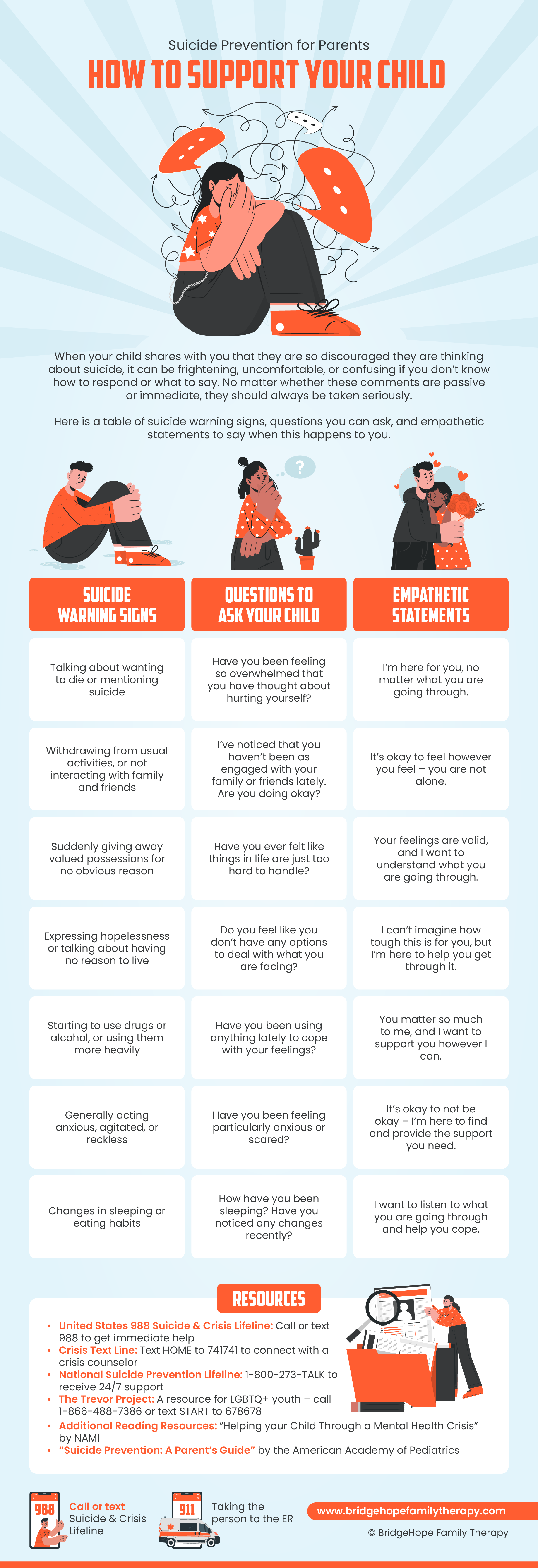How to talk to kids about suicide
You’ve noticed that your child has been acting differently lately. Whether your child has been more withdrawn, or more outgoing, you may begin to sense that something is up. Having a child with suicidal thoughts may be one of the last considerations in your mind. Suicide in children is still one of the more taboo topics in American society, for a variety of reasons. Some people are uncomfortable talking about suicide with such a vulnerable population, while others dismiss the likelihood of children having thoughts of suicide. Yet, there a number of factors that can affect a child’s exposure to suicide, be it through the media, through peers at school, through a medication’s side effects, or via a community tragedy. In fact, in 2022, the University of Utah found that suicide “is the second leading cause of death for young people ages 10-24, since 2014 and in Utah it’s the leading cause of death for children ages 10-17…We have seen children as young as six or seven reporting suicidal thoughts.” These can be scary statistics for parents, particularly Utahn parents, which may be why some parents choose to shy away from or ignore this topic.
However, communication is your best tool for addressing this topic, despite how uncomfortable it may be. Fortunately, the myth of “if I talk to someone about their thoughts of suicide, they’re more likely to do it” is false. Yet, you may still have reservations. How do I know the signs of suicide? What do questions do I ask? What do I say? The infographic below provides a table with examples of different signs (although not comprehensive), as well as questions you can ask your child about their emotions and experiences, as well as statements where you can share your love and concern.
Please include attribution to https://www.bridgehopefamilytherapy.com/ with this image and document.
How to Support Your Child_BridgeHope Family Therapy_9.10.24
Therapist for anxiety
If you still feel uncomfortable talking about this topic, or want some additional assistance in navigating these conversations, reach out and let’s talk together. I have years of experience working with parents like you, as well as children who have shared thoughts of suicide. I am confident that I can help you with your situation. Send me a message below and let’s have a consultation about your experiences.





